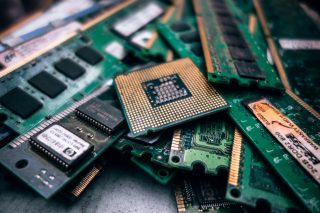
“As one of the greenest cities in the nation, the District is committed to giving our residents convenient opportunities to recycle responsibly right at their local libraries,” said Mayor Bowser. “It takes all of us to keep our city and our world clean, beautiful, and sustainable, and programs like eCycle DC go a long way.”
The first collection events will take place on June 15, from 11:00 a.m. – 2:00 p.m., at Dorothy I. Height/Benning Library (3935 Benning Road, NE) and Chevy Chase Library (5625 Connecticut Avenue, NW). New collection dates and other information on eCycle DC can be found at doee.dc.gov/ecycle.
“Our DC Public Library is a terrific partner in lifting up our civic responsibility to be better stewards of our environment,” said DOEE Director Tommy Wells. “Expanding eCycle DC increases access to the proper handling of these common household items, that unfortunately have easy potential to become toxic materials that harm our health and environment.”
With the support of Wisetek, a locally-based global leader in IT asset disposal (ITAD), re-use and manufacturing services, Samsung Electronics America will collect used electronic equipment at the library locations.
“The District’s neighborhood libraries are trusted, popular, and accessible community anchors,” said DCPL Executive Director Richard Reyes-Gavilan. “Giving residents convenient locations for the responsible disposal of their used electronic equipment is just one more way in which our libraries serve their communities. The Library is proud to help ensure that our city remains at the forefront of innovation in sustainability.”
Mayor Bowser’s Sustainable DC 2.0 Plan established a target to achieve 80% waste diversion citywide without the use of landfills or waste-to-energy by 2032. To help reach that target, electronics were banned from the District’s waste stream in 2018 and manufacturers of certain electronics (televisions, computers, and related equipment) are required to collect a percentage of what they sell annually.
“As one of the world’s largest electronics makers, Samsung believes it is our responsibility to use the same innovative mindset in keeping our supply and disposition chains accountable as we do with our products,” said Mark Newton, Head of Environmental, Regulatory Affairs, and Sustainability at Samsung Electronics America. “Our partnership with Wisetek is an exciting opportunity to advance our environmental objectives by making e-waste recycling more accessible to residents and businesses in the nation’s capital.”
eCycle-covered electronic equipment includes:
Computers and Tablets with screens 6” or larger
Desktops
Laptops
Tablets
Small scale servers
Computer peripherals
Computer monitors
Desktop printers less than 100 pounds
Keyboards
Mice
Speakers sold with computers
Televisions
Television peripherals
DVRs, DVD players, VCRs
Signal converter boxes
Cable and satellite receivers
Game consoles used with TVs
Zack Boorstein, Vice President of Wisetek, added: “We are delighted to be part of such an important program by Samsung to manage the recycling and repurposing of e-waste equipment in DC. With increased obligations on manufacturers to take back e-waste, and growing environmental awareness issues, Wisetek is happy to get involved in this initiative. Education is key to companies learning more about the global sustainability benefits of equipment re-use and recycling and Wisetek are proud to share this important message with people.”
More than 20 pieces of electronic equipment are found in the average American house, and the U.S. Environmental Protection Agency estimates more than 3 million tons of electronic waste is generated each year in the United States. Properly recycling electronics conserves natural resources, ensures appropriate handling of toxic materials, provides a more sustainable source of precious metals, and protects human health and the environment.




